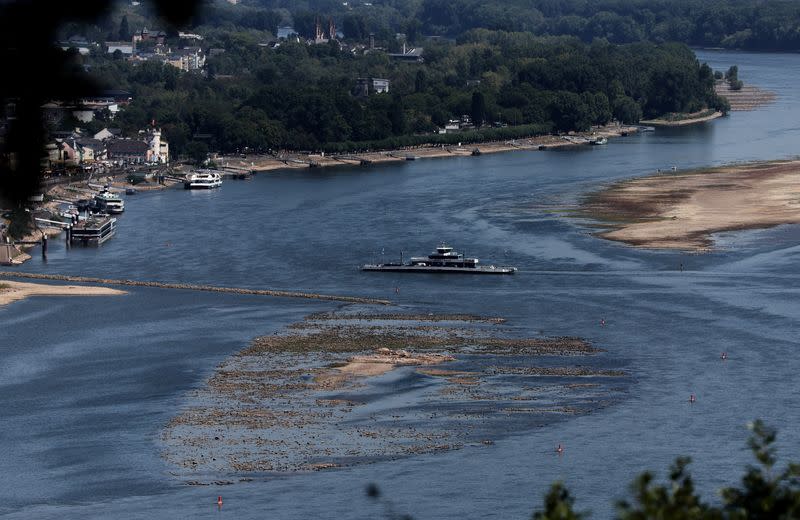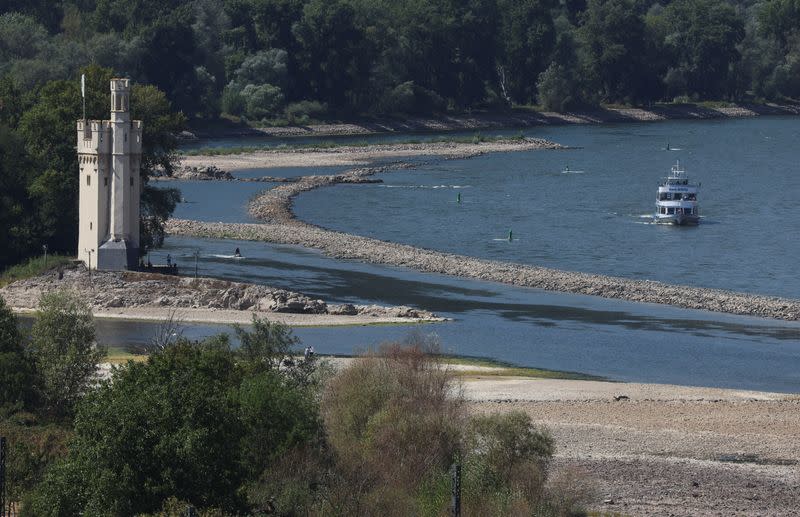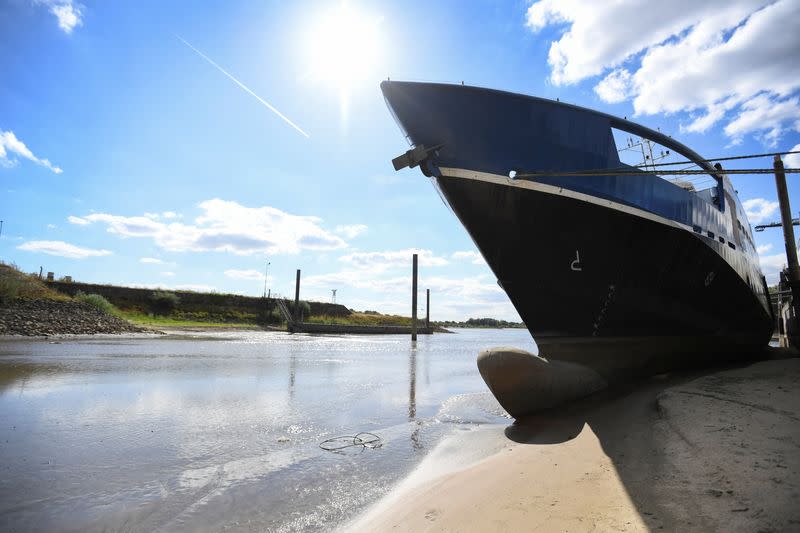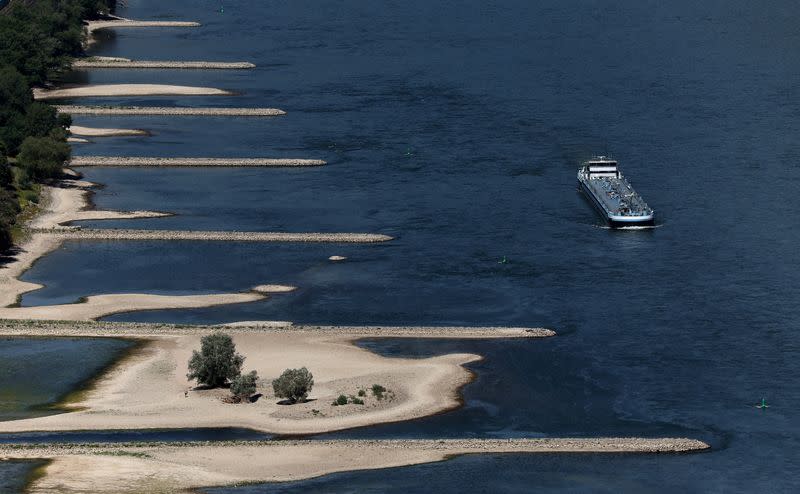By Rene Wagner and Toby Sterling
BERLIN/LOBITH, Netherlands (Reuters) -Already bracing for recession and winter energy shortages, German businesses are grappling with the lack of another precious commodity: rain.
Weeks of baking temperatures and scant rainfall this summer have drained the water levels of the Rhine, the country's commercial artery, causing delays to shipping and pushing freight costs up more than five-fold.
A spokesperson for the transport ministry told a government news conference on Wednesday that "we do expect an intensification of the low water level" on the Rhine, but could not say if or when vessels might no longer be able to pass along the river.
Flowing from the Swiss Alps to the North Sea via German industrial heartlands, the Rhine is a major route for products ranging from grains, to chemicals to coal.
Economists estimate the disruption could knock as much as half a percentage point off Germany's overall economic growth this year.
Barges like the Servia, a 135-metre (148 yards) vessel carrying iron ore from the port of Rotterdam to German steelmaker Thyssenkrupp's plant in Duisburg, can only load 30-40% of its capacity or risk running aground.
On a trip this week, laden with small piles of iron ore, the boat often hugged the groynes along the riverbank where the water was deepest.
In some places the Rhine was so shallow that other vessels were moored far below the quays where people walk. Signs warning people about dangerously high waters stuck out of the riverbed, and rocks lay exposed.
"Normally you have more than two meters under the ship but now you only have 40 centimetres in some places," the Servia's captain Peter Claereboets told Reuters. "And then for us the challenge is to get past those points without touching, without damaging the ship."
"Because of the low water levels, the sailing route gets narrower, and we actually start travelling like trains, in a convoy," he added.
Other boats, unable to cope with shallower waters, have stopped sailing altogether.
The resulting bottlenecks are another drag on Europe's largest economy, which is grappling with high inflation, supply chain disruptions and soaring gas prices after Russia's invasion of Ukraine in February.
Freight charges on the Rhine have risen to around 110 euros ($112) per tonne from around 20 euros in June for a liquid tanker barge. Chemicals group BASF last week said it could not rule out production cuts.
Credit rating agency Moody's said the low Rhine water levels will increase costs for chemicals companies, particularly those with production facilities on the upper Rhine, and could lead to production cuts.






